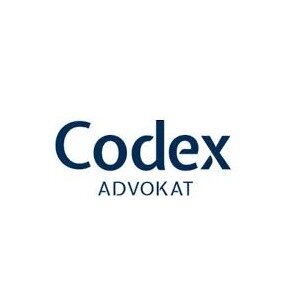Best Tax Increment Financing Lawyers in Norway
Share your needs with us, get contacted by law firms.
Free. Takes 2 min.
Or refine your search by selecting a city:
List of the best lawyers in Norway
About Tax Increment Financing Law in Norway
Tax Increment Financing (TIF) is a financial mechanism used to encourage economic development within designated areas in Norway. Through TIF, municipalities leverage future increases in tax revenues, which arise from a rise in property values due to new developments, to finance current public improvements and infrastructure projects. Although TIF is not as commonly used in Norway as in other countries, it has become a viable tool for municipalities looking to revitalize underdeveloped or economically depressed areas without immediately increasing taxes or allocating present funds.
Why You May Need a Lawyer
Legal advice is often crucial when dealing with Tax Increment Financing due to its complexity and the variety of stakeholders involved. Here are some common situations where legal assistance might be necessary:
- Understanding the intricate details of TIF agreements to ensure compliance with local regulations and maximize financial benefits.
- Negotiating terms with municipal authorities, developers, and other entities involved in the TIF project.
- Assessing the potential financial and legal risks associated with a TIF agreement.
- Resolving disputes that may arise regarding the distribution and use of TIF funds.
- Ensuring the project's alignment with municipal planning and zoning laws.
Local Laws Overview
Norway's approach to Tax Increment Financing is governed by local municipal laws and regulations that aim to balance economic development with public interests. Key aspects of local laws relevant to TIF include:
- Municipal Authority: Municipalities in Norway have the authority to establish TIF districts following strict guidelines to ensure that the areas in question qualify for such financial incentives.
- Public Consultation: Public input is essential in the decision-making process, and municipalities often hold hearings or solicit feedback to gauge public support and address concerns.
- Use of Funds: TIF funds must be used for specified public projects such as infrastructure improvements, public transportation upgrades, and environmental rehabilitation. The funds cannot be diverted for other unrelated municipal expenses.
- Duration and Assessment: TIF agreements usually have a fixed duration, during which the increment in tax revenue is collected and utilized. Periodic assessments ensure that the objectives of the TIF are being met and that adjustments can be made if necessary.
Frequently Asked Questions
What is the primary purpose of Tax Increment Financing in Norway?
The primary purpose is to stimulate economic development and redevelopment in designated areas by using future tax revenue increases to fund essential infrastructure and public improvements.
Who can initiate a TIF project?
Primarily, municipalities are responsible for initiating TIF projects; however, developers and private entities can propose projects that municipalities may consider.
How are TIF districts established?
TIF districts are established through a municipal resolution following a review process that includes public consultation and alignment with local development plans.
How long can a TIF agreement last?
Typically, TIF agreements have a defined duration, often ranging from 10 to 25 years, depending on the scale and objectives of the project.
Are there risks associated with TIF?
Potential risks include project failure, lower-than-expected increases in property value, and mismanagement of funds, which can lead to financial losses for the municipality.
Can TIF be used for residential projects?
Yes, TIF can support residential projects, particularly those that provide affordable housing or contribute to the overall economic development plan of the area.
How are the funds allocated within a TIF district?
Funds are allocated based on the project plan, which outlines specific public improvements and infrastructure needs approved by the municipal authorities.
What happens after the TIF agreement period ends?
Once a TIF agreement expires, the additional tax revenue is re-integrated into the general municipal budget, and regular taxation rates apply.
Can a TIF district be modified after it is created?
Yes, modifications can be made, but they typically require municipal approval and may necessitate additional public consultation.
Is public input important in TIF projects?
Yes, public input is crucial to ensure transparency, address concerns, and garner community support for TIF projects.
Additional Resources
For further assistance and information regarding Tax Increment Financing in Norway, the following resources may be helpful:
- Norwegian Ministry of Local Government and Modernisation
- Municipal Planning Departments
- Local municipal websites often provide detailed guides on TIF processes and current projects
- Norwegian Real Estate website for updates on urban and regional development
- Norwegian Bar Association for finding legal professionals specializing in real estate and public finance law
Next Steps
If you find yourself needing legal assistance in relation to Tax Increment Financing, consider the following steps:
- Consult with a lawyer specializing in real estate or public finance to discuss your specific needs and concerns regarding TIF projects.
- Gather all necessary documents related to your TIF agreement or proposed project for a comprehensive legal review.
- Engage with local municipal authorities to clarify any questions regarding regulations and procedures.
- Attend public meetings or hearings related to the TIF district if applicable, to stay informed and participate in the decision-making process.
Lawzana helps you find the best lawyers and law firms in Norway through a curated and pre-screened list of qualified legal professionals. Our platform offers rankings and detailed profiles of attorneys and law firms, allowing you to compare based on practice areas, including Tax Increment Financing, experience, and client feedback.
Each profile includes a description of the firm's areas of practice, client reviews, team members and partners, year of establishment, spoken languages, office locations, contact information, social media presence, and any published articles or resources. Most firms on our platform speak English and are experienced in both local and international legal matters.
Get a quote from top-rated law firms in Norway — quickly, securely, and without unnecessary hassle.
Disclaimer:
The information provided on this page is for general informational purposes only and does not constitute legal advice. While we strive to ensure the accuracy and relevance of the content, legal information may change over time, and interpretations of the law can vary. You should always consult with a qualified legal professional for advice specific to your situation.
We disclaim all liability for actions taken or not taken based on the content of this page. If you believe any information is incorrect or outdated, please contact us, and we will review and update it where appropriate.
Browse tax increment financing law firms by city in Norway
Refine your search by selecting a city.

















